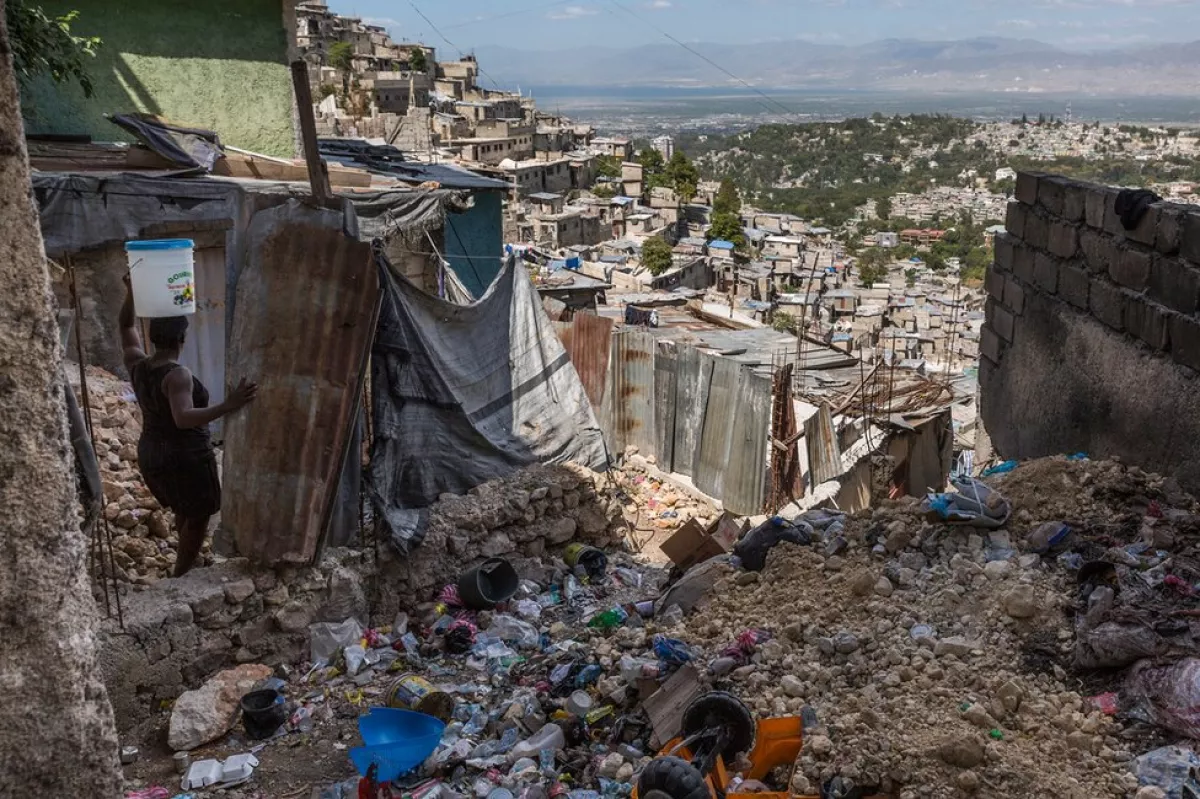Price of liberation: Haiti still shackled by France’s independence ransom Opinion by The Irish Times
An article by Patrick Smith has been published in the Irish newspaper, The Irish Times, focusing on the historical injustice related to the "independence debt" imposed on Haiti by France. Caliber.Az reprints the article.
April 17th was not so much a celebration – definitely the wrong word – as an “occasion” to mark the bicentennial of France‘s belated recognition of Haiti‘s independence. French president Emmanuel Macron admitted as much, speaking with grotesque understatement of how France had subjected the first state liberated by its slave population to the “unjust force of history” by shackling it, the poorest state in the western hemisphere, to a monstrous debt from which it has yet to escape.

His predecessor, François Hollande, acknowledged the debt France owes Haiti, swiftly clarified as “moral debt”. Macron would go no farther – talk of reparations are still taboo – but last month he set up a joint commission of inquiry into the historical effect of that debt.
It was the crown jewel of French colonies, the most profitable of them all, thanks to its sugar, coffee and cotton production. But Haiti, then known as Saint-Domingue, had a population in the 1780s of half a million, 90 per cent of it transported slaves from Africa, the highest concentration of slaves in the Atlantic area. Between 1785 and 1790, Saint-Domingue absorbed 37 per cent of the entire transatlantic slave trade.
And in 1791 they rose up in the largest and most successful slave insurrection in history.
Its inspiration, and its message inspired by the French Revolution of “liberty or death”, struck fear in slave owners from Brazil to South Carolina. They mobilised and quickly secured the reinstatement of slavery in other French slaveholding islands (such as Martinique, Guadeloupe and Reunion Island, where slavery continued until 1848).
Although Haiti’s new rulers declared its independence in 1804, France only recognised it in 1825 – and then only after a French fleet arrived in Port-au-Prince with 500 cannons and forced the country’s leaders at gunpoint to “indemnify” the dispossessed slave owners for their “property” losses. They demanded and got a commitment to 125 million gold francs (€2.4 billion in today’s currency), some six times the island’s annual production. It was later reduced to 90 million francs.
The demand was outrageous even for the time. In 1803, the Louisiana Purchase (some or all of 15 US states) had been sold by France to the US for 80 million francs. Haiti occupies a territory only a 77th of that size.
Among those compensated at more than $3,000 per slave, the New York Times reported, were the empress of Brazil, the son-in-law of the Russian tsar Nicholas I, the last imperial chancellor of Germany, and Gen Gaston de Galliffet, nicknamed the “massacrer of the Commune”, after his bloody repression of the Paris insurrection of 1871.
It was impossible to pay it all at once. In some years, France monopolised more than 40 per cent of the Haitian government’s revenues, and the country was forced to rely on a consortium of French bankers who advanced the sum required, with interest – the “double debt” that Haiti dragged around like a ball and chain until the 1950s, and which was upheld by every French government in the interim, of whatever political complexion. Immense profits were generated by Crédit Industriel et Commercial, CIC, a bank that co-financed the Eiffel Tower and is now one of the largest financial conglomerates in Europe.
The long-running sore between the two states was opened up properly in 2022 by the New York Times with a groundbreaking investigation into the debt. According to its calculations, Haiti had by then repaid France the equivalent of $560 million (€498 million) in present-day prices, with historic losses for its economy estimated to be between $21 billion and $115 billion, eight times the country’s GDP.
The former figure corresponds to what had been a much derided first demand for reparations made in 2004 by the later-deposed reformist president Jean-Bertrand Aristide. The coup in which France had a hand was almost certainly in response to that impertinent demand.

Violence-ridden Haiti’s “double debt”, in effect a ransom for independence, and the borrowing to pay it, has pushed the country down a spiral of indebtedness over the last century, unable to break from the path of poverty and underdevelopment, its people still on the brink of famine. As cafe owner Cedieu Joseph told the New York Times, “The slaves fought for our independence. To make them pay for that independence is simply to create a new type of slavery.”
Leading French economist Thomas Piketty puts it bluntly: “Let’s state it outright: France owes approximately €30 billion to Haiti, and should immediately start restitution talks. The notion that France cannot afford such a payment does not hold up. While the sum is significant, it represents less than 1 per cent of France’s public debt (€3.3 trillion) and barely 0.2 per cent of private wealth (€15 trillion): It’s like a drop in the ocean.”
Getting it, however, will be like getting blood from a stone.








